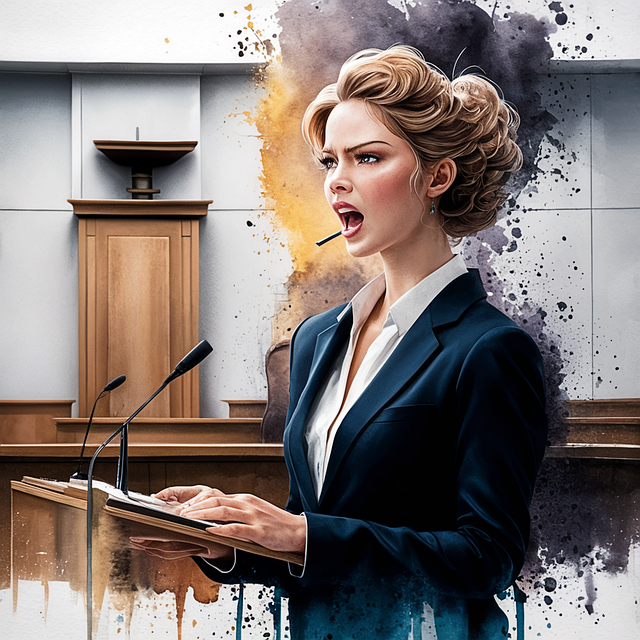Consumer protection laws, guided by crucial Legal Standards for Burden of Proof, protect individuals from deceptive businesses. Plaintiffs must provide compelling evidence meeting a preponderance of evidence threshold, demonstrating harm, intent, and causation. Strategies include expert testimony, document analysis, and legal knowledge, with jury trials favored for redress and deterrence. Defendants employ defense tactics while ensuring consumer access to effective remedies, all underpinned by proof standards safeguarding fair outcomes and business accountability.
“Unraveling the Complex World of Consumer Protection Suits: A Comprehensive Guide. In an era where consumer rights are paramount, understanding legal protections is vital. This article delves into the intricate dynamics of consumer protection laws and their underlying purpose. We explore the crucial concept of the burden of proof and its legal standards in consumer cases. Furthermore, it provides insights into strategic approaches for proving claims, while highlighting consumers’ rights and available remedies, offering a thorough examination of this essential legal domain.”
- Understanding Consumer Protection Laws and Their Purpose
- The Role of the Burden of Proof in Consumer Cases
- Legal Standards and Strategies for Proving Claims
- Rights and Remedies for Consumers in Protection Suits
Understanding Consumer Protection Laws and Their Purpose

Consumer protection laws are designed to safeguard individuals from deceptive or unfair business practices, ensuring they receive accurate information and fair treatment when making purchases. These legal standards aim to level the playing field between consumers and businesses by holding companies accountable for their actions. The primary purpose is to empower buyers, enabling them to make informed decisions and protect their rights.
In consumer protection suits, the Legal Standards for Burden of Proof play a pivotal role. When a consumer alleges a violation, it’s crucial to establish that the business engaged in deceptive or misleading conduct. The onus is often on the plaintiff to provide evidence, demonstrating the existence of a material misrepresentation or omission and its impact on the consumer’s decision-making process. Achieving extraordinary results in such cases requires a comprehensive understanding of these legal standards, strategic evidence presentation, and a dedicated advocate who fights for his clients’ rights, ensuring they receive the justice they deserve.
The Role of the Burden of Proof in Consumer Cases

In consumer protection suits, the legal standards for burden of proof play a pivotal role in shaping the outcome of cases. Unlike criminal proceedings where the prosecution bears a higher burden to prove guilt beyond a reasonable doubt, civil cases, including consumer lawsuits, typically require plaintiffs to demonstrate their claims by a preponderance of evidence. This means that a plaintiff must convince a judge or jury that their version of events is more likely than not to be true. The focus here is on achieving extraordinary results through solid evidence and legal arguments rather than proving guilt like in white collar defense cases across the country.
The burden of proof shifts slightly when it comes to certain consumer protections. For instance, if a business has actual knowledge or should reasonably know about a product defect, they may be held liable even without direct evidence of negligence. This is designed to protect consumers from hazardous products and services, ensuring that businesses act responsibly in their dealings with customers. By setting these legal standards for burden of proof, the law aims to foster fairness and accountability, encouraging businesses to uphold high standards in order to avoid potential lawsuits.
Legal Standards and Strategies for Proving Claims

In consumer protection suits, the legal standards for proving claims are stringent but fair. The plaintiff bears the burden of proof, which means they must provide compelling evidence to support their allegations against a defendant. This involves presenting factual findings that demonstrate harm, intent, or negligence, depending on the specific claim. Legal experts in these cases employ strategic approaches tailored to each unique scenario, focusing on all stages of the investigative and enforcement process for his clients.
The strategy often includes meticulous documentation, expert witness testimony, and a thorough understanding of applicable laws. For white-collar defense, these strategies may include challenging the admissibility of evidence or questioning the integrity of sources. The goal is to ensure that the case meets the required legal standards, providing a fair outcome based on solid evidence.
Rights and Remedies for Consumers in Protection Suits

In consumer protection suits, consumers have a range of rights and remedies that are designed to ensure fair treatment and compensation for any harm caused by unsafe products or deceptive practices. When a consumer brings a case against a company or individual under various consumer protection laws, the legal standards for burden of proof come into play. The plaintiff (consumer) must typically demonstrate that there was a violation of the law, that they suffered damages as a result, and that the defendant’s actions were a direct cause of their harm. This involves presenting evidence that meets the required legal thresholds.
Across the country, jury trials are often the preferred method for consumer protection suits due to their ability to provide redress and send strong messages to businesses engaging in deceptive or unsafe practices. General criminal defense strategies may be employed by defendants, aiming to undermine the plaintiff’s case by questioning the evidence, challenging witnesses, and raising legal defenses that dispute liability. However, the key is ensuring that consumers have access to effective remedies, with legal standards for burden of proof acting as a safeguard to prevent unfair outcomes and promote accountability among businesses.
Understanding consumer protection laws is paramount for both businesses and consumers. These regulations are designed to safeguard individuals from unfair practices, ensuring a level playing field. By comprehending the burden of proof and employing effective legal standards, consumers can navigate their rights and remedies with confidence. This knowledge equips them to hold businesses accountable, fostering an environment that prioritizes consumer protection and fair trade practices.






